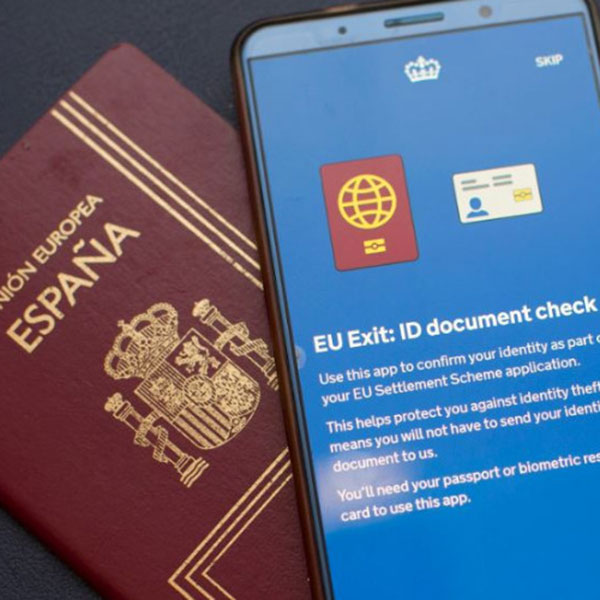Email continues to be the most popular digital channel for business communication. Its mechanics have remained largely unchanged but the protocols around usage have. Get it wrong and you could find yourself in hot water
Everyone knows that laws exist governing bulk emailing but on the shop floor, there is a lot of confusion about what that actually means, and what the implications are if you don’t follow the legal strictures. If you use a mailing list to promote an enterprise and the list is not composed purely of personal friends and family members, then you need to keep reading.
Bulk emailing: what’s not legal
If you have a mailing list which promotes a business enterprise, then you must comply with the General Data Protection Regulation (GDPR) and the Data Protection Act.
Even if you could be bothered to read that lot, this would not apply to you. You run a life drawing class in the local community hall and you have less than 50 people on your mailing list. Surely, this legal stuff only applies to big business mailings, right?
WRONG! It does apply to you and don’t call me Shirley
If you have an email address that is not a personal friend or family member, and you use it in a bulk email, then you must be able to prove you have a legitimate reason for having that address. The addressee must be able to manage the data you keep about them and be able to delete it from your records at any time. No matter how small your enterprise, if you are bulk emailing anything other than your holiday photos and Christmas newsletters to personal contacts, then you must comply with the law.
What constitutes a ‘legitimate’ reason?
The GDPR creates the apparent paradox of having to email your mailing list to ask permission to email them but even that might not be legal – ask Honda. But you can have someone’s consent to contact them by email by means other than a digital tick-box consent – a business card, a vcard between phones, or their contact details supplied on a paper napkin. Is that not legitimate? The GDPR is well-intentioned but hardly nuanced. Strictly speaking, that’s not GDPR-compliant. In the real world, though, it is about your recipients. If they think your message is inappropriate and mark it as ‘spam’, then you’ve got it wrong. Your emails must:
- Be relevant to the recipient;
- Must indicate your true identity and purpose;
- Must contain your business address, and
- Have an unsubscribe button.
To allow your addressees to access the data you hold on them, they either have to have a copy of your door key and know the login for your PC, or your mailing list must be accessible online. That first part is a joke, you have to keep your business mailing list online. If you want to keep a copy on your hard drive in your PC, it must be synced to your online account.
Bulk email service providers take care of your legal requirements for minimal effort and expense. MailChimp is the biggest and best known and offers completely free services for small operators. It is not, however, the only one, Google ‘bulk email service providers’ to see reviews of what is on offer.
What if I just keep BCCing my mailing list?
There are two considerations. By breaking the law, you could be prosecuted. I grant you, if your mailing list is few neighbours in your allotment’s ‘gardening tips’ group, it is unlikely you’ll be raided. You’ll need to have a pretty spectacular fall-out with one or more of your group for someone to feel it necessary to report you for a GDPR breach.
Google monitors your email behaviour and if it thinks you look suspicious, it will blackball your account
However, if you are bulk emailing from your personal account using the ‘BCC’ trick, your email service provider notes this. Similarly, the service providers of your recipients note this too and there is a danger your email might be marked as spam. Google monitors your email behaviour (even if you don’t use Gmail) and if it thinks you look suspicious, it will blackball your account, your ISP and maybe your domain name.
And it won’t tell you, it will just bin your emails. The intended recipients won’t be able to find and white list your email address because your messages won’t even make it to their spam folders. You will be silenced without you even knowing.
What do I have to do?
You need to sign up with a bulk email service provider and upload your mailing list. You will need a business snail mail address which must be published in your emails. If you don’t have an office address, you can use your home address but you may not want to do this. Instead, get a PO box number. You can get free ones from service providers like UK Post Box.
Now you need to learn how to use your bulk email service provider, but that is another story…
Rank Stupidity

The Home Office is a repeat offender. It not only commits the sin of BCCing, it repeatedly fails to exercise its data protection duties still further by simply CCing, thus revealing the recipients’ email addresses. In any other workplace, failure to protect both your client data and observe the GDPR law would get you fired. Don’t be like the Home Office
Read more
- Understanding Email Laws and Regulations – Campaign Monitor
- Electronic mail marketing – ICO (Information Commissioner’s Office)
- Guide to the General Data Protection Regulation – gov.uk
- Marketing and advertising: the law – gov.uk
- Candid answers to CAN-SPAM questions – Federal Trade Commission
- Most of those GDPR emails you’ve been getting are either illegal or unnecessary – iNews
- Bulk Senders Guidelines – Gmail Help
- How to Send Bulk Email Without Spamming – Campaign Monitor
- 10 Best Email Marketing Services for Small Business – Hosting Facts
- How to Remove Your IP from the Gmail Blacklist – Rackraid
- How to stop your email marketing being marked as spam – email blaster











